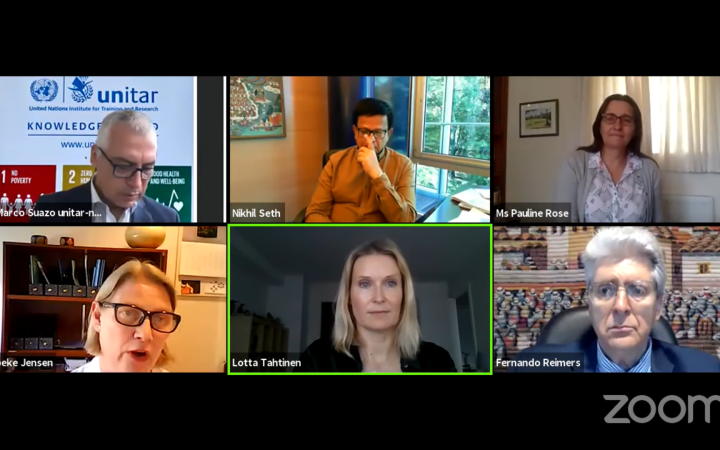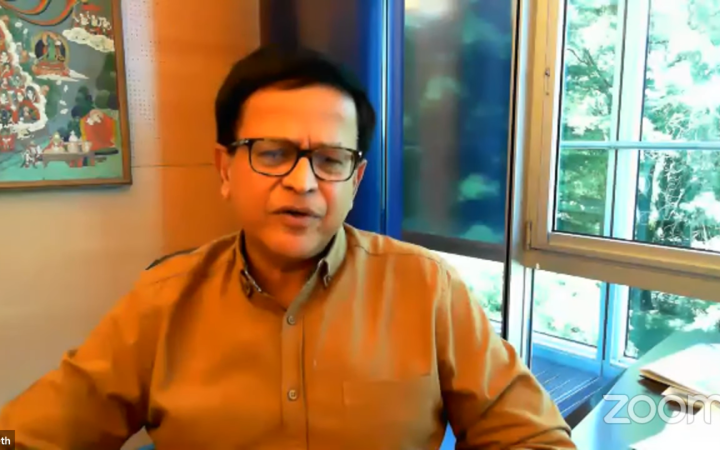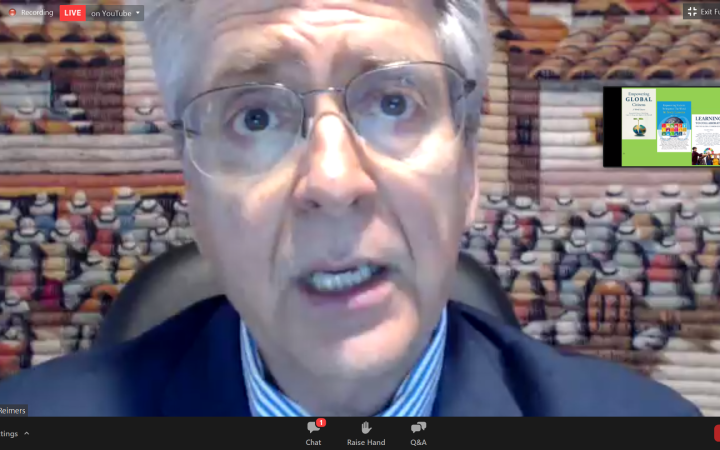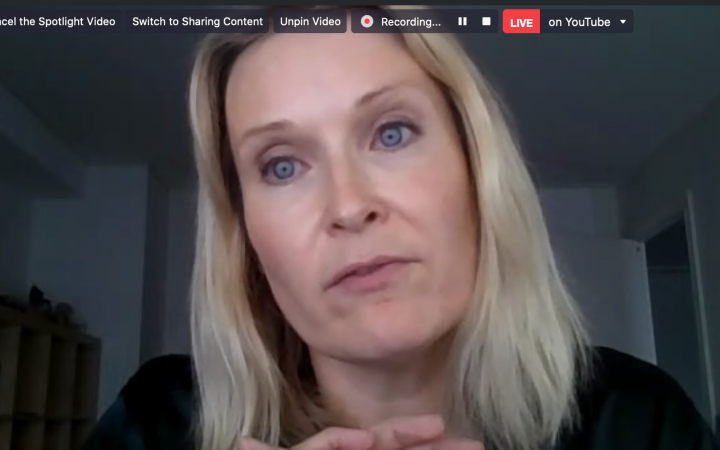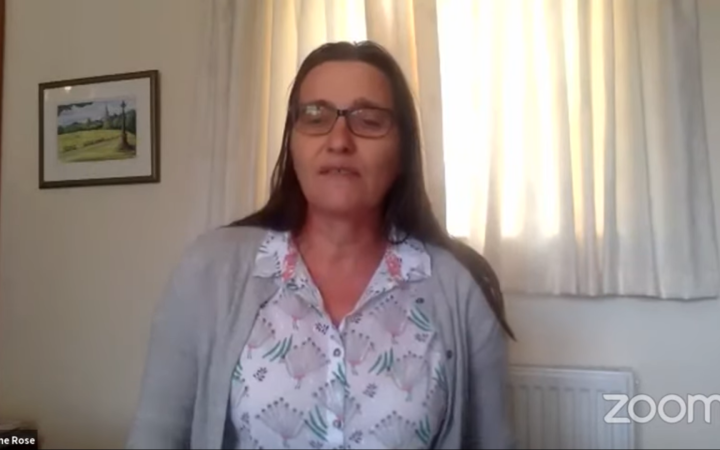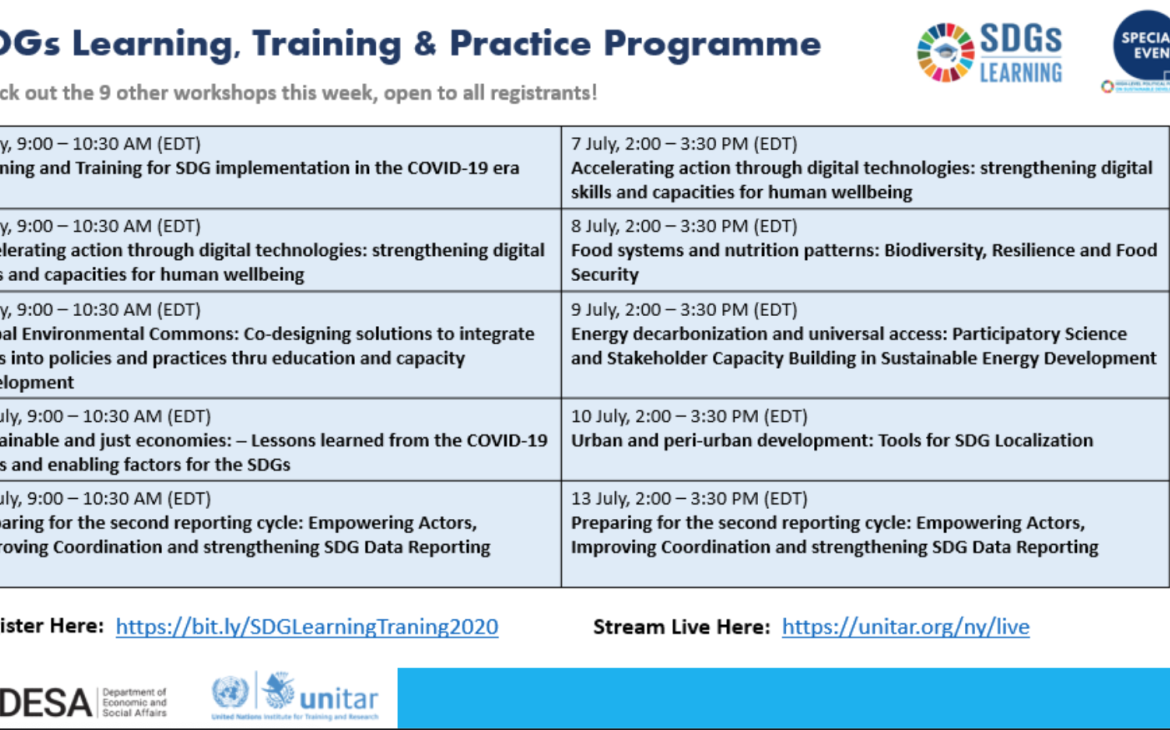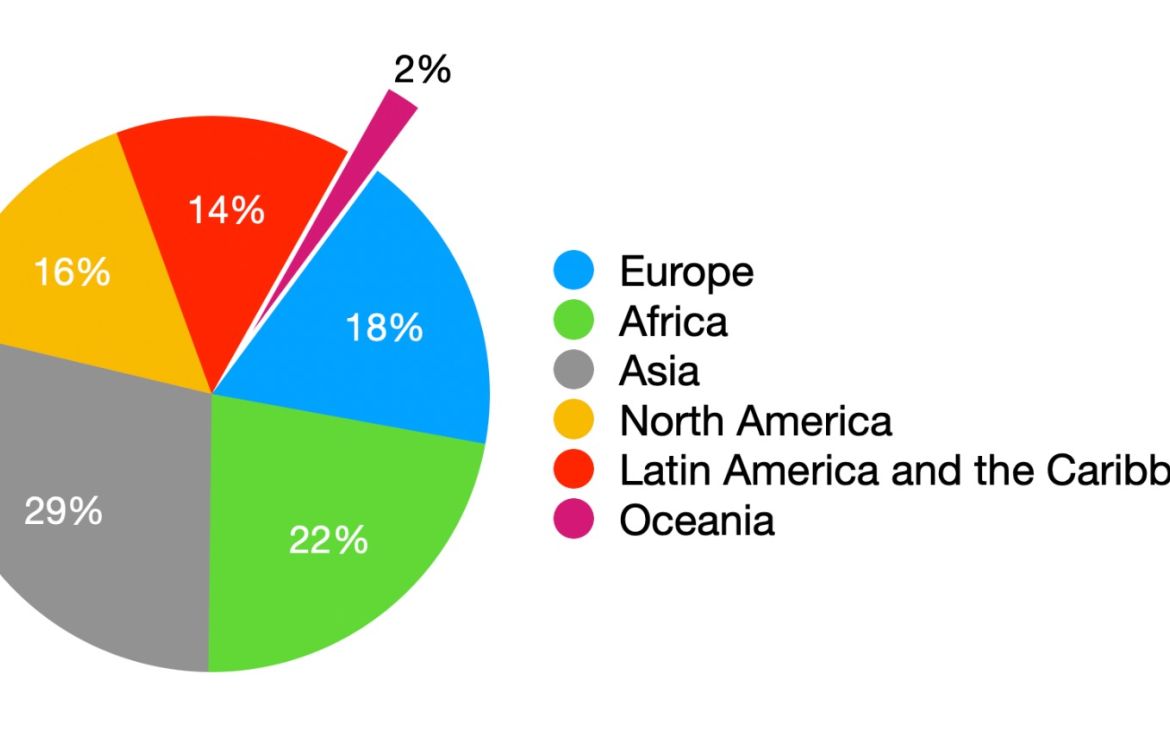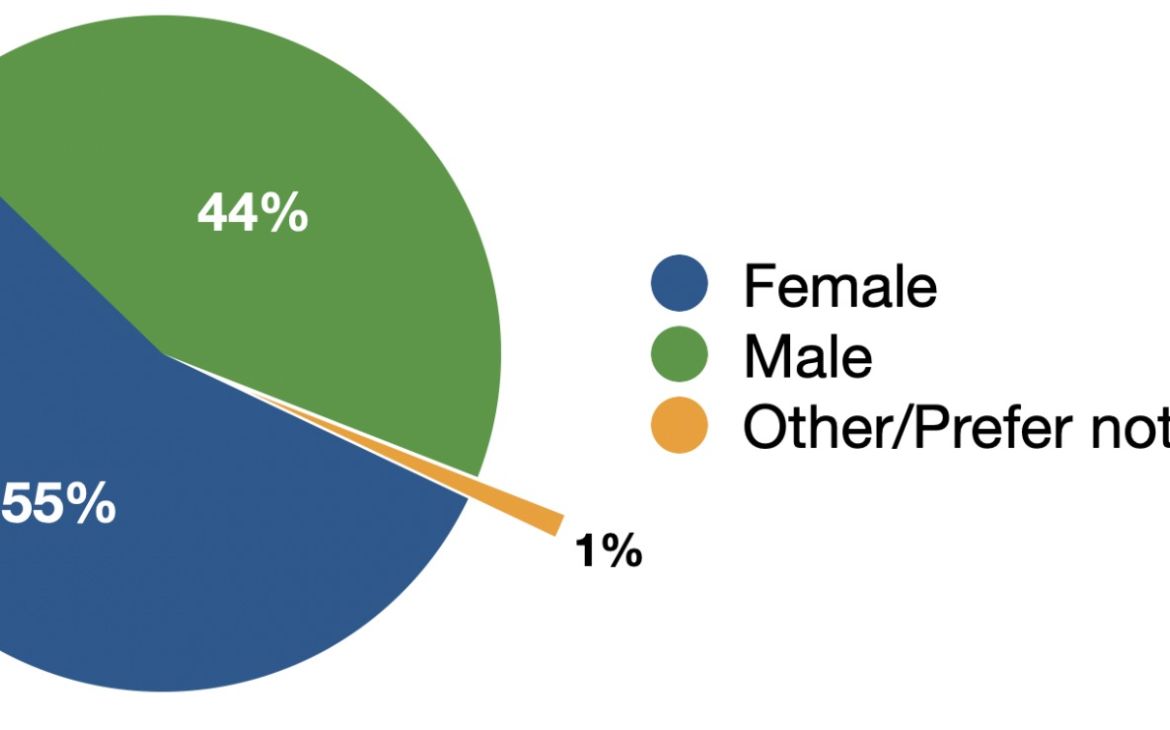7 July 2020, New York, USA, Zoom Workshop - The United Nations Institute for Training and Research (UNITAR) Office in New York, in collaboration with the United Nations Department of Economic and Social Affairs (UNDESA), hosted the first workshop “Learning and Training for SDG implementation in the COVID-19 era” of the High-level Political Forum (HLPF). The SDG Learning training and practice center is a weeklong training series that offers a wide range of training workshops featuring speakers and experts from academia and other sectors. This year’s programme is the 5th edition of the SDG Learning and Training series, which has benefited more than 4,000 participants since 2016. This first workshop was attended by 800 participants from around the world who joined remotely through video conference. The first 5 sessions have been concluded as of 9th July 2020, and have benefited 1,790 participants and have reached more than 5,000 views in YouTube.
The head the UNITAR office in New York, Mr. Marco Suazo, delivered a warm opening remark, and welcomed the participants and highlighted the importance of this session as a foundation for the success of the HLPF. All participants were encouraged to make use of the given space to share knowledge, expertise, and ideas on how to implement the SDGs amid the Covid-19 crisis. After giving the welcome remarks, he passed the floor to the Executive Director of UNITAR and the United Nations Assistant-Secretary General, Mr. Nikhil Seth.
Mr. Seth expressed his gratitude for UNDESA and UNITAR’s effort in hosting the 5th Edition of the learning center. The learning center is the result of a successful and fruitful partnership between UNITAR and UNDESA. He mentioned that despite the existing challenges faced during the Sustainable Development Goals (SDG) implementation process, this unprecedented time also provides opportunities to rethink the economic drivers and lifestyles. He then emphasized three focuses of today’s workshop: How the pandemic has affected the implementation of the SGDs, what is the impact of the Covid-19 crisis on SDG learning, and how to make use of this time to set our incentives for a more environmental-friendly post- Covid-19 recovery.
A brief remark was made by Ms. Maria Francesca Spatolisano, the Assistant Secretary-General for Policy Coordination and Inter-Agency Affairs from the UNDESA. In the effort of strengthening stakeholder engagement for the implementation and review of the 2030 Agenda, and the engagement of interested individuals from different Member States, she and her department launched the Massive Open Online Course (MOOC). As a free and open resource, this is a great opportunity for people to learn about approaches and tools that enable interests and participation in the SDG implementation process. She encouraged all the delegates and participants to make use of this public resource and accelerate the SDG implementation process together.
After the opening remarks, the keynote speaker Professor Fernando Reimers, the Ford Foundation Professor of the Practice of International Education and the Director of the Global Education Innovation Initiative at Harvard University, proceeded to deliver his presentation on the topic of SDG Implementation in the COVID era. Professor Reimers acknowledged the adversities this global pandemic has brought to the public and the education system. But he believed that leaders and academia need to commit to building resilience amid the crisis. He insisted that the existence of the current SDGs served as a north star to guide the educational systems forward. Based on his expertise, he proposed three tools to transform the SDGs into practical educational curriculum. He concluded his session by saying that each one of us must do what is within our power to influence the achievement of the SDGs.
After Mr. Reimers's keynote speech, Mr. Marco Suazo introduced the moderator of the panel, Ms. Lotta Tahtinen, the Chief of the Outreach and Partnerships Branch for the Division for Sustainable Development Goals (DSDG), UNDESA. She led the panel discussion of “The role of Education in building back better in the Decade of Action for Delivery of the Sustainable Development Goals.” The first of the speakers of the panel, Ms. Vibeke Jensen, the director of the Division for Peace and Sustainable Development from United Nations Educational, Scientific and Cultural Organization (UNESCO) started the panel sharing UNESCO’s experience in adapting and by explaining the difficulties that the pandemic created and accentuated in education. She proposed the questions on the efficiency and the quality of online education for children and mentioned how this crisis has reshaped the education field. She explained that as education method becomes more adaptive and diverse, many sectors need to re-adjust their capacity to receive and provide better education for children and future generations. This starts with valuing and supporting teachers, who are at the heart of learning. She emphasized that the SDG’s target 4 (“ensure inclusive and equitable quality education and promote lifelong learning opportunities for all”) and 7 (“ensure access to affordable, reliable, sustainable and modern energy for all”) need to be taken more into consideration, as these will set the tone and foundation for the successful implementation of other SDGs.
The next panelist was Ms. Pauline Rose, Professor of International Education from Cambridge University and the Director of the Research for Equitable Access and Learning (REAL) Centre. She emphasized that before the pandemic, there has already been an emergency in the status of global education but the pandemic has only aggravated this situation. She called that in order to understand and recognize the most vulnerable, information must be collected from different sources to have a better picture on different realities. In addition, she emphasized the importance of data accuracy and how it will impact education results.
Ms. Madeleine Zuniga, Vice President of the Global Campaign for the Right to Education, Member of the Latin American Campaign for the Right to Education, was the next panelist to present. She focused on the inequalities of education, especially under the hit of pandemic. Given the scarce resources and the economic inequalities, students from different regions suffer on different levels and a lot of them are being left behind as they are not equipped to receive online education. She mentioned that the best contribution to bridge the inequalities is to act as an ally and contribute more resources to public education. Ms. Tasnim Hemmadeh, the Founder of ActGreen in Syria closed panel.
Lastly, Mr. Alexander Trepelkov, the officer in charge of the Division for Sustainable Development Goals (DSDG) from UNDESA, offered the closing remarks. He thanked UNITAR and UNDESA for their joint effort in making this session happen, and he thanked all speakers for their inspiring presentations. He strongly encouraged participants to attend the upcoming HLPF sessions. The SDG Learning Center will continue throughout the 13th of July with 9 more sessions which will analyze and work towards the achievement of the 2030 Agenda.


